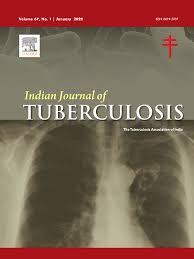Cost effectiveness of decentralised care model for managing MDR-TB in India

Citation: John, D., Chatterjee, P., Murthy, S., Bhat, R., & Musa, B. M. (2018). Cost effectiveness of decentralised care model for managing MDR-TB in India. Indian Journal of Tuberculosis, 65(3), 208–217. https://doi.org/10.1016/j.ijtb.2017.08.031
Abstract: In India, multidrug-resistant tuberculosis (MDR-TB) patients are usually treated in hospitals. Decentralised care model, however, has been suggested as a possible alternative by the World Health Organization (WHO). In the “End TB Strategy”, the WHO highlights, as one of the key targets for 2035, that ‘no TB-affected families should face catastrophic hardship due to the tuberculosis’. Removal of financial barriers to health-care access and mitigation of catastrophic expenditures are therefore considered vital to achieve the universal health coverage (UHC) goal. Since forgoing healthcare due to the financial constraints is a known fact in India, decentralised care as an intervention choice (as against hospital-based care) might enhance equity provided it is an affordable choice. Thus, an economic evaluation was conducted, from the perspective of the national health system in India, to assess the cost-effectiveness of decentralised care compared to centralised care for MDR-TB.
Author(s): Indian Journal of Tuberculosis
Year: 2018
Language: English
Region(s): INDIA
Resource Type: Journal Articles
Source: Other
Filed under: Economic evaluation, Equity, India, Journal Article, mdr-tb, multidrug-resistant TB, Research, TB care
